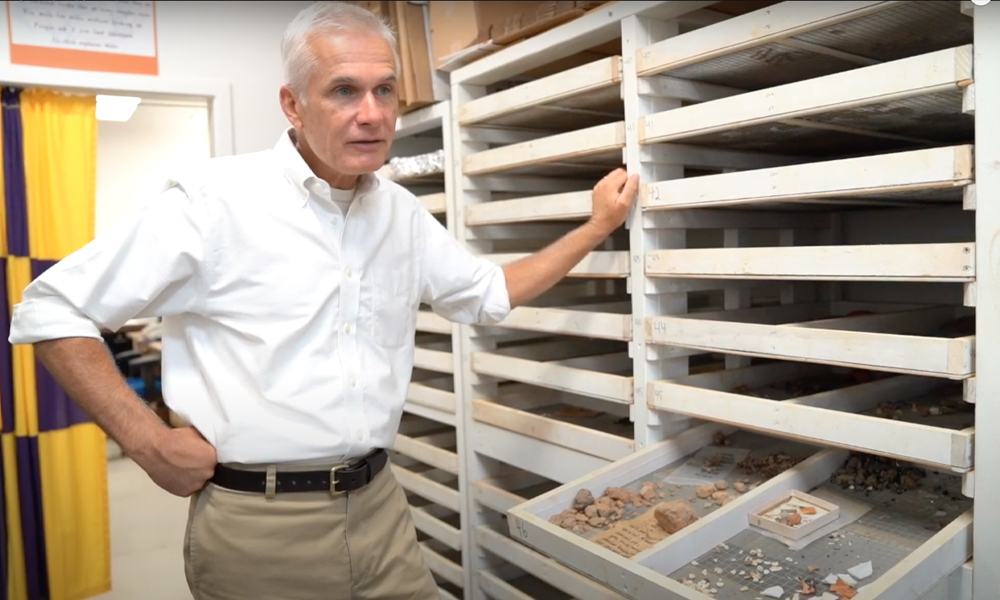Social science research often spans the JMU majors Anthropology, International Affairs, Justice Studies, Political Science, Public Administration and Sociology.
Anthropology
Students may conduct practical, hands-on research through internships, anthropology labs, excavations and field-schools and study abroad. Each spring students can present independent research during our Undergraduate Student Research Symposium. Many students conduct research alongside professors and serve as co-authors on publications.
In the Archaeology Lab, students are exposed to techniques of archaeological interpretation alongside trained personnel. After collecting artifacts in the field, students can process them in the lab to discover historical context.
During archaeological field school, students are trained in the latest excavation and laboratory techniques. Most recently, students have helped explore Native American villages in Georgia that were among the first to interact with European explorers.
Justice Studies
The Nelson Institute Seminars allow students to engage in practical, problem-solving exercises and applied research in the field of justice studies. Students work in small group settings to collaborate with community partners.
The Gandhi Center functions as a global hub to advance the understanding and practice of nonviolence. It co-hosted the Cultivating Peace Student Symposium at JMU and select student papers were published in the International Journal on Responsibility.
Courses are organized around the core questions of rights, responsibilities, fairness and standards. Our goal is to do more than provide knowledge and insight into the issues that challenge society. We also provide students with the creative thinking and investigative skills to identify opportunities to address these issues, formulate options for doing so and successfully communicate their ideas.
The Justice Studies program has several upper level courses that provide an excellent opportunity for our majors to work closely with individual faculty and develop these abilities. Student work in these courses takes the form of producing both traditional research reports and digital documents.
Political Science
Majors: Political Science, Public Administration, International Affairs
Students apply the skills they develop in their courses to policymaking and political communication simulations, policy research briefs and field projects with local organizations. Many students conduct research alongside professors, earning course credit for their work.
Sociology
Students may pursue individually-driven applied, hands-on research with faculty supervision through independent studies, internships, honors theses, alternative spring break programs and study abroad. Students have the opportunity to present research or creative scholarly activity at the Undergraduate Student Research Symposium each spring. Many students conduct research alongside professors and serve as co-authors on publications.


